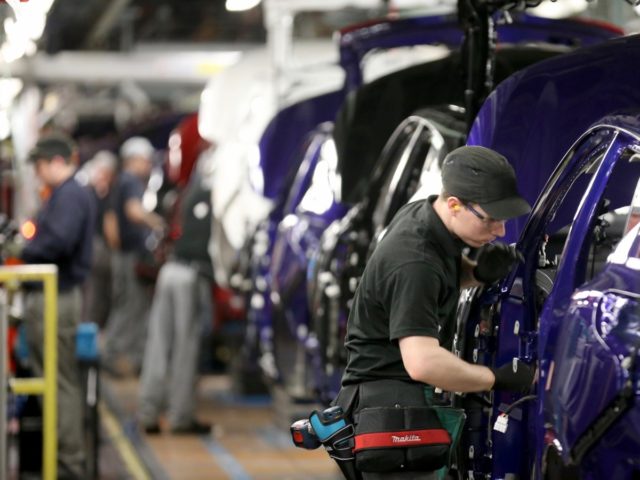The UK’s managing director of Nissan, Andrew Humberstone, has said that he is “satisfied” with the UK-EU trade deal agreed last month, and doubled down on the Japanese company’s commitment to building cars in Britain, even despite the lockdown.
Mr Humberstone said that the bilateral free trade agreement “finally gives us some certainty and enables us to plan for the future success of our collective operations across the region”.
He added that the Sunderland plant “will continue to build cars despite the UK lockdown”, according to letters sent to Nissan dealerships seen by Autocar magazine.
The Sunderland factory is Britain’s largest car plant and employs 7,000 people. It produces the Juke, the electric Leaf, and the Qashqai, which last year was reported as the UK’s best-selling British-made car.
In May 2020, while there was no certainty of a deal, Nissan had backed Brexit Britain, committing to retaining the Sunderland plant and even then stating that “the plant is now preparing for the arrival of the new Qashqai”.
‘Operation Bleach’: Boris Johnson Orders the Removal of Any References to the EU in British Laws https://t.co/8AxuvVFu9i
— Breitbart London (@BreitbartLondon) January 11, 2021
In March, the Japanese company said that the plant would receive a £4oo million investment to build the third-generation Qashqai, which was reemphasised by Autocar’s January report. With the Qashqais set to hit the market in 2021 and models lasting some five years, British workers at the plant will find that line secured beyond mid-decade.
Unveiling the new Qashqai’s printing press, Ashwani Gupta, Nissan’s global chief operating officer, said at the time: “Designed, engineered and made in the UK, and more than three million vehicles later, it remains the benchmark, just as our team in the UK continues to set the standard for productivity and quality.”
The report comes despite Project Fear claims made before the referendum that the vote to leave the European Union would plunge the UK into recession, resulting in hundreds of thousands of job losses, forcing the government to enact a “punishment budget” with tax rises and budget cuts to offset the turmoil.
In January 2017, Cambridge University’s Centre for Business Research found that Remainer predictions ahead of the referendum were “very flawed and very partisan”.

COMMENTS
Please let us know if you're having issues with commenting.